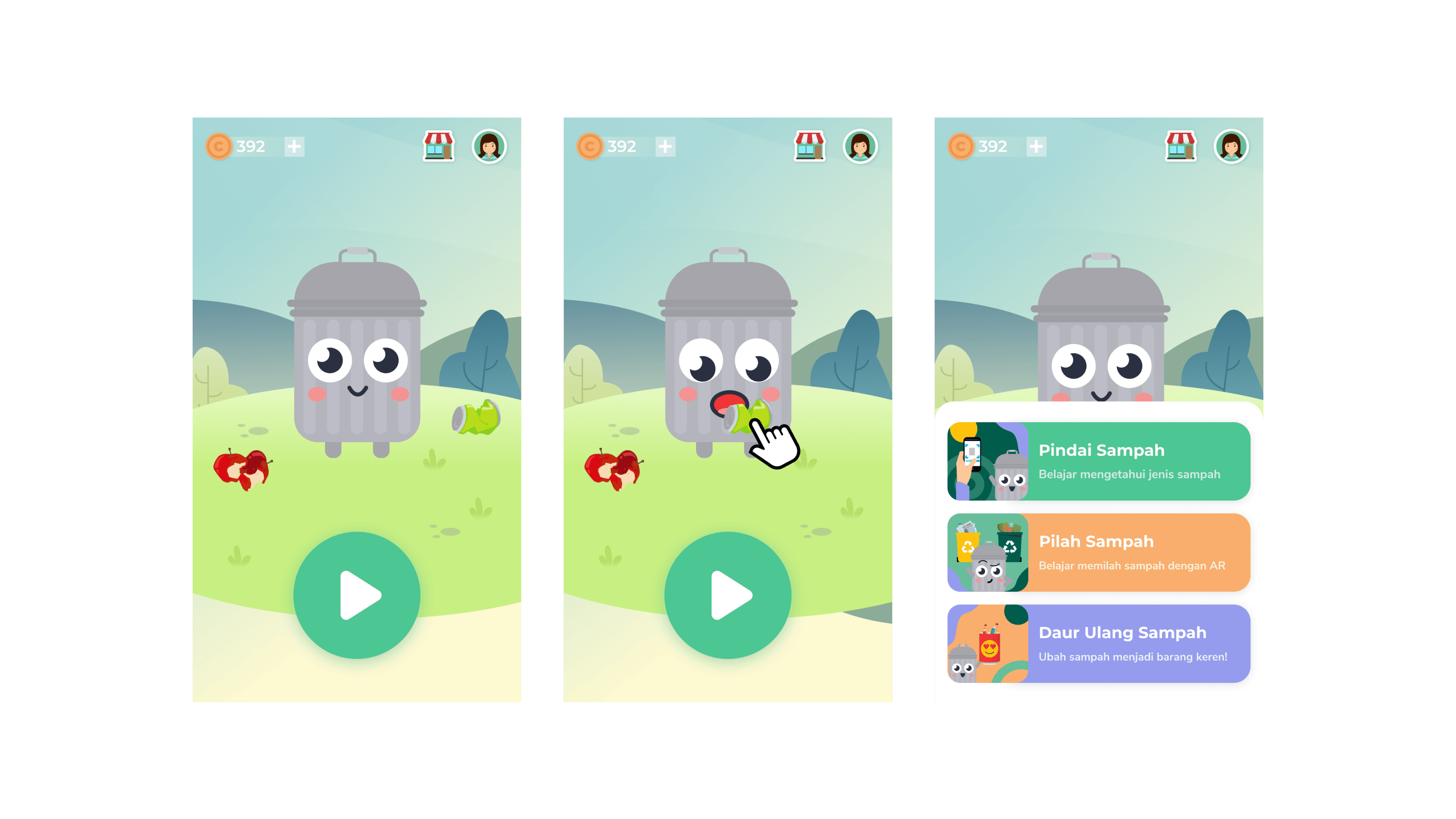Doko is an educational application designed to teach children about waste sorting and disposal. Key features include:
Waste scanning using Convolutional Neural Networks (CNN) for image classification
An immersive AR waste sorting game that overlays virtual waste items in the real world
Interactive learning experiences that bring waste management concepts to life
Educational content on recycling and waste management
Child-friendly interface designed for intuitive interaction
Developed using Unity for optimal gaming experience, including the AR feature
As part of the Doko product design team, we applied a Goal-Directed Design approach with the following stages:
Research and User Understanding: We conducted observations of children's behavior and interviewed teachers to understand the context of waste issues and potential for AR in learning. This data was used to create user models, helping us understand how children might interact with an AR sorting game.
Ideation and Concept Development: Based on research insights, we brainstormed ideas for the AR waste sorting game. I created concept sketches and wireframes, visualizing how virtual waste items would appear and interact in the real world through the app.
AR Game Design and Prototyping: I designed the AR game mechanics, focusing on intuitive gestures for sorting virtual waste items. Using Unity and AR development tools, I created prototypes of the AR sorting game for early testing and refinement.
Visual Design and Asset Creation: I designed 3D models of various waste items and UI elements for the AR game, ensuring they were visually appealing and easily distinguishable in augmented environments.
Usability Testing: We conducted specific tests for the AR sorting game, measuring factors like ease of interaction with virtual objects and the game's effectiveness in teaching waste sorting. Heat map analysis helped us understand children's focus areas during AR gameplay.
Collaboration and Integration: I worked closely with AR developers to implement the sorting game, ensuring smooth integration with the app's other features. We collaborated with ML engineers to connect the CNN-based scanning feature with the AR game.
Refinement and Finalization: Based on feedback from testing, we iteratively improved the AR sorting game, enhancing object tracking, refining game mechanics, and optimizing performance across different devices.
Doko's AR waste sorting game has shown promising early results. In a trial across five elementary schools, 90% of teachers reported that the AR game significantly enhanced student engagement with waste sorting concepts. 85% of the 200 child users surveyed found the AR sorting game "highly enjoyable," with 75% demonstrating improved real-world waste sorting skills after playing the game for just two weeks. Parents noted a 50% increase in children's interest in recycling at home, often mimicking the sorting gestures they learned in the AR game with real objects. While still in early stages, these results highlight the potential of Doko's AR sorting game to create lasting environmental awareness and behavior change among Indonesian children, setting a new standard for interactive, technology-driven environmental education.








